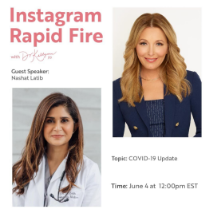Navigating the Emotional Challenges & Embracing Functional Medicine Solutions
Throughout the ages, society has unfairly blamed women for infertility, even though both men and women can have risk factors that cause it.
Cultural norms and lack of knowledge have made people believe that women’s fertility problems are the biggest cause of a couple’s inability to conceive. This stigma makes many women feel ashamed and motivated to keep their infertility a secret.
But research reveals that men’s fertility problems are a big part of the issue, too. Studies show that in about 20% of cases, the man is infertile(1). In 30%, it’s only the woman. For 30-40% of infertile couples, both partners together account for the fertility problems.
That said, women tend to carry more of the burden when it comes to infertility. For example, most conception research and support has been aimed at women. Family planning services also usually focus more on women than men. So, it’s no wonder why women often shoulder more responsibility (and therefore guilt) when natural conception fails.
The good news is that, as a result, women also tend to become more educated about fertility–and their bodies—than men. In fact, a 2014 study found that 81% of women received preconception care sometimes or often, while only 38% of men did(2) This means that women have more opportunities to find out about the root causes of their infertility, get help from doctors, and talk about it openly. But this also makes people think infertility is only a problem for women, not men.
Infertility Shaming: Why Women Get an Unfair Share of the Blame
One big reason women get blamed unfairly for infertility is that society has always expected women to prioritize having babies. In many cultures, a woman’s value and status depend on her ability to have children — especially sons. When a couple can’t get pregnant, people often look at the woman first. They question her lifestyle, health, and even her morals.
A 2021 research paper published in the International Journal of Fertility and Sterility(3)
revealed, “Infertile women face social and self-stigma which threatens their psychosocial well-being and self-esteem. They use defensive response mechanisms and social support to mitigate these effects. ”
People often think infertility is just a “woman’s problem” caused by issues with her reproductive system, like blocked fallopian tubes, endometriosis, or polycystic ovary syndrome (PCOS).
But we now know that infertility can also be caused by problems with a man’s sperm, like low sperm count, poor sperm movement, or genetic issues. In fact, an article in the well-respected Oxford Academic stated that men’s fertility problems contribute to more than half of infertility cases overall(4).
Despite this fact, as women of childbearing age, we often encounter more social stigma and psychological distress when dealing with infertility. We may be subjected to invasive questioning about our personal lives, be blamed for waiting too long to start a family, or be accused of prioritizing our careers over motherhood. This added stress can take a significant toll on our mental health and physical well-being.
And this added stress only compounds our problems because stress can interfere with the body’s reproduction system. It can make ovulation happen late or not at all, leading to irregular or missed periods. Early research also hints that high levels of the stress hormone cortisol might get in the way of normal egg development and ovulation(5).
In light of these blame/shame societal challenges, plus any other obstacles you may encounter as you journey along on your path toward pregnancy and childbirth, you’ll want to take extra good care of yourself—physically, mentally, and spiritually—as you prepare for this sacred time of conception and childbirth.
Functional Medicine Strategies to Release the Burden of Unexplained Infertility
Dealing with unfair blame and shame for infertility can be tough and emotionally draining during your prime reproductive years. Learning healthy ways to improve your physical health while proactively managing your emotional and mental states can help you handle the stigma with less stress. And when you’re more relaxed, you’re more likely to conceive!
Here are some mental health strategies that can help you cope with the psychological burden of unexplained infertility:
- Acknowledge and validate your feelings
- Communicate openly with your partner
- Educate yourself and others on the true root causes of infertility
- Seek support from non-judgemental, empathetic loved ones
- Join a support group
- Prioritize self-care
- Consider professional counseling
- Focus on your strengths and accomplishments
- Practice self-compassion
- Take back control by working with a functional fertility expert – so much of the stress and strain comes from feeling helpless, so understanding what may be causing your—and your partner’s—inability to conceive often helps mitigate anxiety and depression
Both men and women can benefit from making key physical lifestyle changes to increase fertility.
For instance, inflammation in the body can negatively impact fertility, so it’s essential to focus on eating a healthy, balanced diet rich in whole foods and low in processed, inflammatory foods.
Additionally, ensuring adequate intake of prenatal vitamins and nutrient-rich supplements—particularly key nutrients like folate, iron, calcium, and vitamin D—can help support your reproductive health and increase the likelihood of conception.
It’s critical to point out that while food is an ideal source of necessary vitamins, minerals, and antioxidants, getting all the nutrients you need to get pregnant from food alone is nearly impossible.
That’s why choosing high-quality, pharmaceutical-grade supplements is vital. Many readily available brands you can purchase in stores and online contain fillers and poor-quality ingredients. Our supplements sold in our Reimagined Health shop are pharmaceutical-grade, meaning they meet the highest standards of efficacy, safety, and potency and can only be distributed through medical professionals.
Avoiding exposure to environmental toxins like pesticides, heavy metals, and endocrine-disrupting chemicals found in certain plastics and personal care products can also help improve your fertility.
Getting enough sleep, managing stress through relaxation techniques, maintaining a healthy weight, and engaging in regular moderate exercise are all lifestyle factors that can also improve your odds.
Conclusion
A lot of people blame women for infertility, but infertility is complicated – and men and women can each contribute to it.
To change how society thinks, we need to teach people about the causes of infertility in both men and women. Couples having trouble getting pregnant should treat it as a shared problem, and doctors should be educated to order tests and treatments that address both male infertility issues and female.
By accepting your emotions, finding support, taking care of yourself, and working together with your partner, you can make the process easier.
In our practice, we 100% understand the emotional and physical struggles couples go through. That’s why we’re incredibly passionate about taking a holistic approach to helping couples conceive naturally. Functional fertility is all about considering the whole person, not viewing the human body as a series of parts to be fixed (like a mechanic sees a car).
Nor do we focus on addressing symptoms—and yes, infertility IS a symptom of a deeper, underlying imbalance!
We go to the root of the problem and resolve it… and that’s why we have an over 80% success rate with our couples who haven’t been able to get pregnant any other way!
By promoting a greater understanding of infertility and offering support (and real solutions!) to couples struggling to conceive, we can work together to ensure you receive a more equitable and compassionate approach to this complex and emotionally charged issue.
If you would like to resolve your (and your partner’s!) potential root causes of infertility, we offer a highly effective, step-by-step fertility reboot process. Watch our free, on-demand masterclass here and take the action step to apply to work with us. We’ve helped countless couples like you succeed in optimizing their fertility, even when they are starting a family a little later in life.








